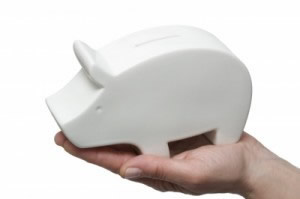High interest savings accounts are best found online
Published 10/20/10 (Modified 8/8/11)  By Matt Riddle
By Matt Riddle
A year ago, my wife and I switched banks. She was pregnant with our first kid and, like many Americans, we were saving money however we could.
We had our accounts in two different banks -- both traditional national chains with thousands of branches in the country and sports stadiums named after them -- that offered savings accounts that were accumulating about 0.25 percent interest on a small sum. While we were mostly happy with our banks, our needs had changed, and we wanted better interest rates on our accounts. After fees, we realized that we weren't saving but losing money.
Employees at both banks essentially admitted they were giving us an inferior product. We sorted through what we thought were the best online banks as well as a few local ones and picked one that offered not only a high interest savings account but interest checking as well. After that, we couldn't switch banks fast enough. I wanted our money to go toward saving for our future, not domes for basketball games.
How to find the best savings account rates and what to look for
There is a growing trend among banks to offer better savings rates in non-traditional savings accounts. So if you're thinking about making a switch to capitalize on higher interest rates, keep these five things in mind while hunting for better savings.
1. Interest rate
Is
Read the full article » By Sierra Black
By Sierra Black  By Peter Andrew
By Peter Andrew  By Peter Andrew
By Peter Andrew  By Megg Mueller
By Megg Mueller